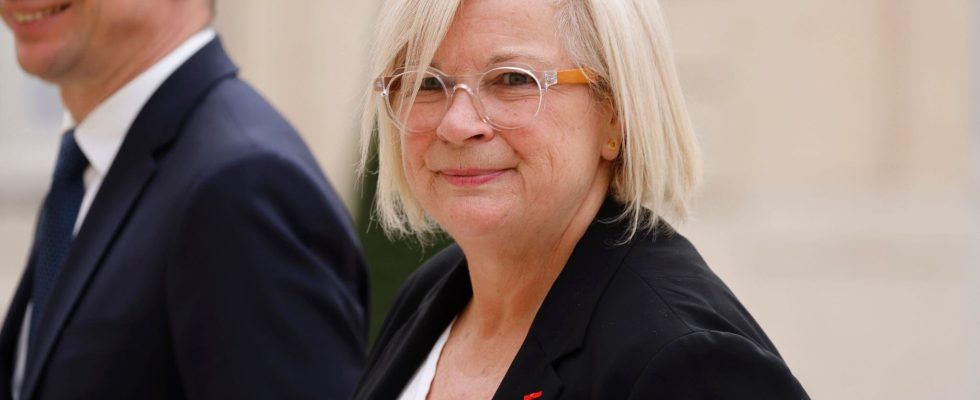The word “prevention” has disappeared from the title of the portfolio of Catherine Vautrin, appointed Minister of Labor, Health and Solidarity. Should we see a certain coherence with her thread with a magnificent photo of the Reims vines? She may well be an elected official from the region, but the signal sent to the world of health in full swing Dry January turns out to be surprising to say the least. Even if the government has never agreed to formalize this alcohol-free month of January, an operation carried out solely by associative actors, the message is clear: prevention against alcohol, even though it is the cause of 49,000 deaths per year. year in our country, is still not on the agenda.
This is not the only reason for concern in the world of health, which has just lost its full ministry, which has been essential since the start of the Macron years. A very bad signal, when avenue de Ségur has already welcomed six tenants in six years. Never under the Fifth Republic had this ministry experienced so much instability. The time of Covid, when Emmanuel Macron promised investments and “a deep, long-term response” to health professionals, is definitely behind us.
Of course, this is not the first time, far from it, that Health has been integrated into a larger portfolio. But in the era of Xavier Bertrand or Roselyne Bachelot, the medical deserts were less vast, and the hospital crisis much less profound. The Confederation of French Medical Unions, the main representative of liberal doctors, consoles itself by noting that Health is thus “going back into the government’s protocol order”: “The CSMF sees this as a sign that Health, the second source of concern of the French, could finally benefit from the necessary means”, indicates its president Franck Devulder. But it is to better express its “vigilance” on the place that it will actually occupy within this great ministry.
Avenue de Ségur, the files are piling up
If political leaders waltz, the challenges remain. Restore the attractiveness of the hospital, while emergency services are still struggling during this period of winter epidemics, and provide lasting responses to citizens who can no longer find doctors to treat them, will not be the least. From this point of view, the continuation of the negotiations on the liberal price increases and their counterparts in terms of permanence of care and organization of unscheduled appointments will be closely scrutinized.
Added to this are two other undermined subjects. The reform of State Medical Aid, promised by Emmanuel Macron to a right that is very angry on the subject, but which tenses a large part of the medical world. And the law on the end of life, constantly postponed, but which will eventually have to be put at the heart of the debates. To try to respond to those most hostile to euthanasia and assisted suicide, a ten-year plan for palliative care must be presented by the beginning of February. The bill on active assistance in dying will only arrive at a later stage.
Will Agnès Pannier-Runacher, tipped as Minister for Health, be likely to reassure the medical profession? The current Minister of Energy Transition will not find herself in unfamiliar territory, unlike Catherine Vautrin who cannot boast of much experience in this area. Agnès Pannier-Runacher went through Public Assistance – Paris Hospitals, and she stood out for her negotiating skills with pharmaceutical laboratories during the Covid crisis. Skills that will be useful in the fight against recurring drug shortages. But perhaps also to redress the Health Insurance accounts, at a time when ever more expensive drugs are arriving on the market. Their two personalities are in any case seen by many as a signal that the time is now more for savings than for investments…
